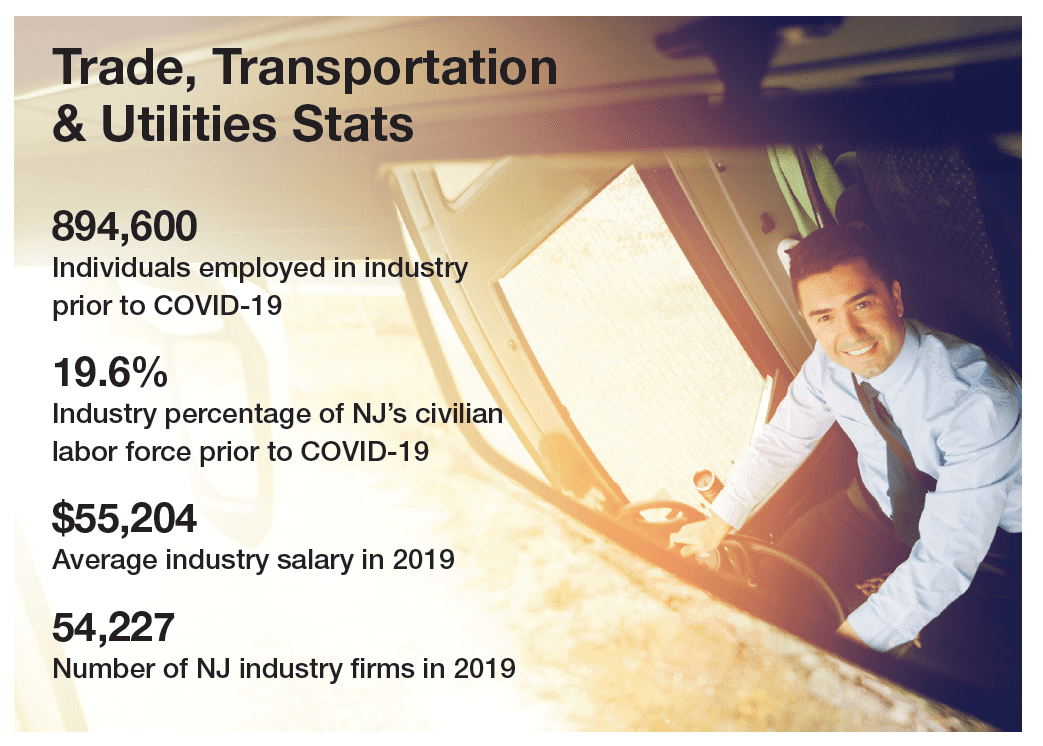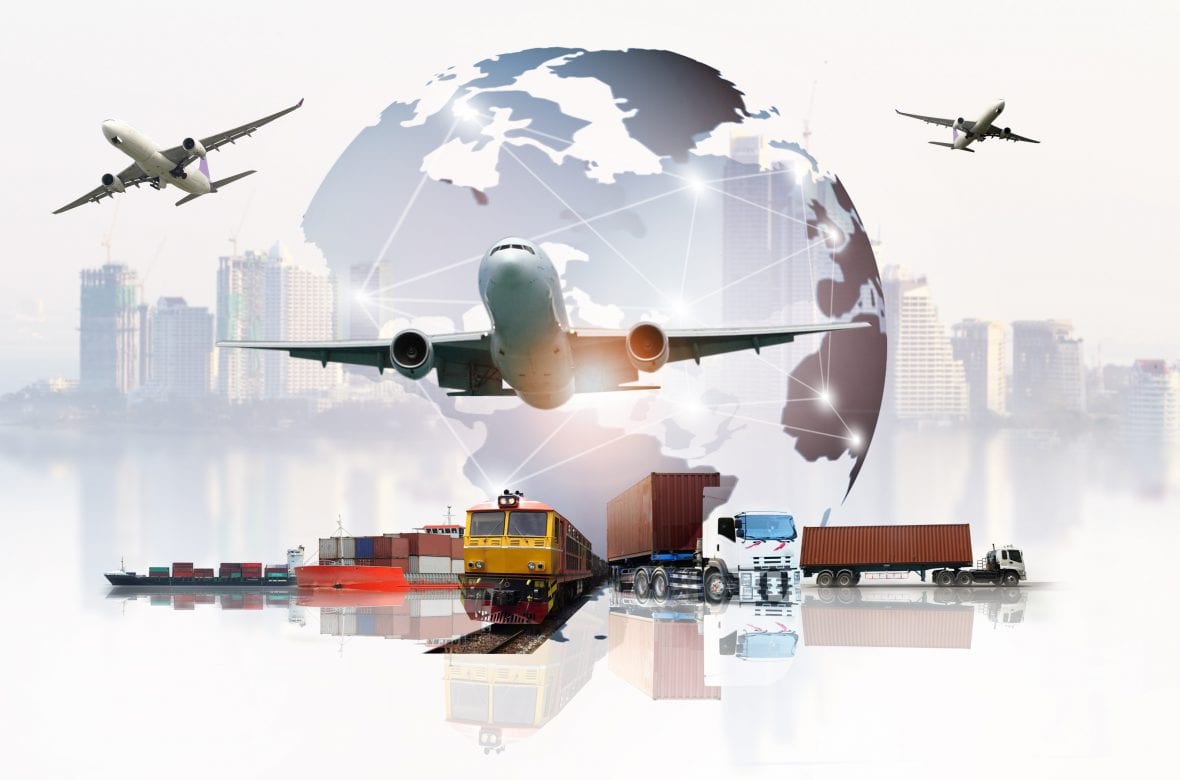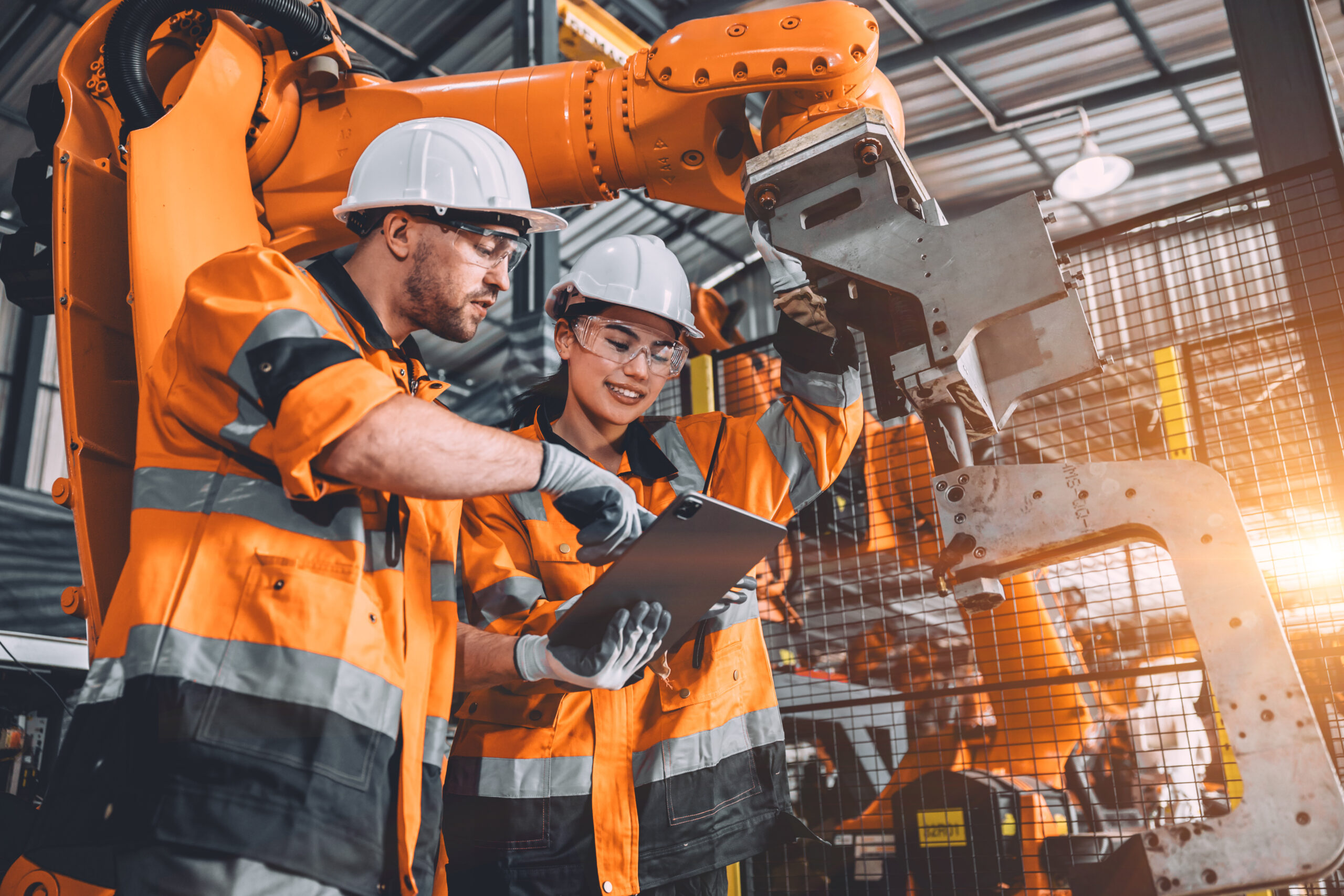Integration of Technology and AI Transforming T,T & U Industry
Like many New Jersey industries, the integration of technology and artificial intelligence (AI) continues to play a major role in the transformation of the trade, transportation & utilities industry. Individuals working in the industry are likely already well accustomed to working with the latest software, programming, and platforms. However, these advancements do not come without challenges. Maintaining the security and privacy of confidential, sensitive information and constantly changing technologies are two major challenges for the industry.

Trends: The trade, transportation & utilities industry gained 72,479 jobs from 2010 to 2019, with total industry employment increasing to nearly 877,000 jobs in 2019, according to the US Bureau of Labor Statistics (BLS). Prior to COVID-19, the industry employed 894,600 individuals or 19.6% of the state’s civilian labor force, according to the BLS. Despite an increase in employment, the number of trade, transportation & utilities firms decreased from 59,068 in 2010 to 54,227 in 2019. In total, the industry lost 4,841 firms in a single decade.
Wages: On average, a trade, transportation & utilities worker in New Jersey earned $55,204 in 2019, an increase from $46,631 in 2010, according to the BLS. Workers in Somerset County made the most, earning an average $70,773 in 2019, while workers in Cape May County were paid the least. Average annual wages for this industry were low in 2019 compared to other industries.
In fact, 17 of New Jersey’s 21 counties earned average wages that were less than $60,000 in 2019, while five counties earned less than $40,000 on average: Cape May ($33,162), Ocean ($37,457), Cumberland ($37,658), Atlantic ($38,750), and Sussex ($39,322).
Innovations: According to Focus NJ’s Future of Work Industry Series Study, technological advancements continue to bring dramatic change to the industry’s operations, business models, and profit-making. The Internet of Things (IoT) is revolutionizing
the industry’s daily business strategies as investments are being made to provide better services, products and technologies that aid in efficiency and sustainability.
Skill Sets for the Future: According to Focus NJ’s Future of Work Industry Series Study, the adoption of technology, artificial intelligence, and automation defines the future of the industry. The trade, transportation & utilities industry relies on the knowledge and mastery of skill sets in cybersecurity, information technology, semi-autonomous & autonomous vehicles, IoT software & hardware, big data, analytics, robotics, automation, CDL licensed driver, and machinists. The future of the industry will rely heavily on the
digital economy. As such, jobs in this industry will likely require higher-level skills resulting in higher wages.
This content was published in the January 2021 Edition of the NJ Business Magazine.





